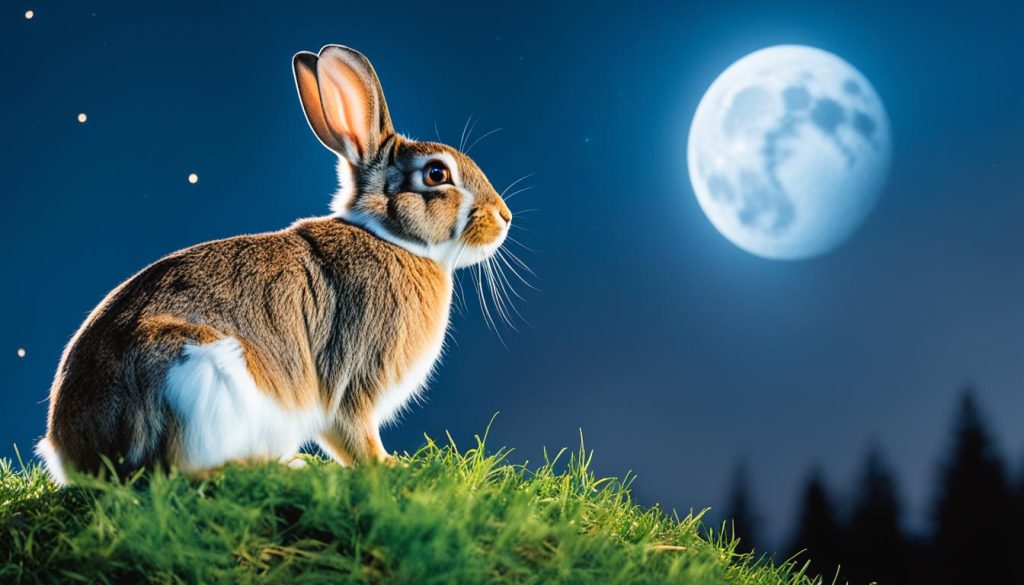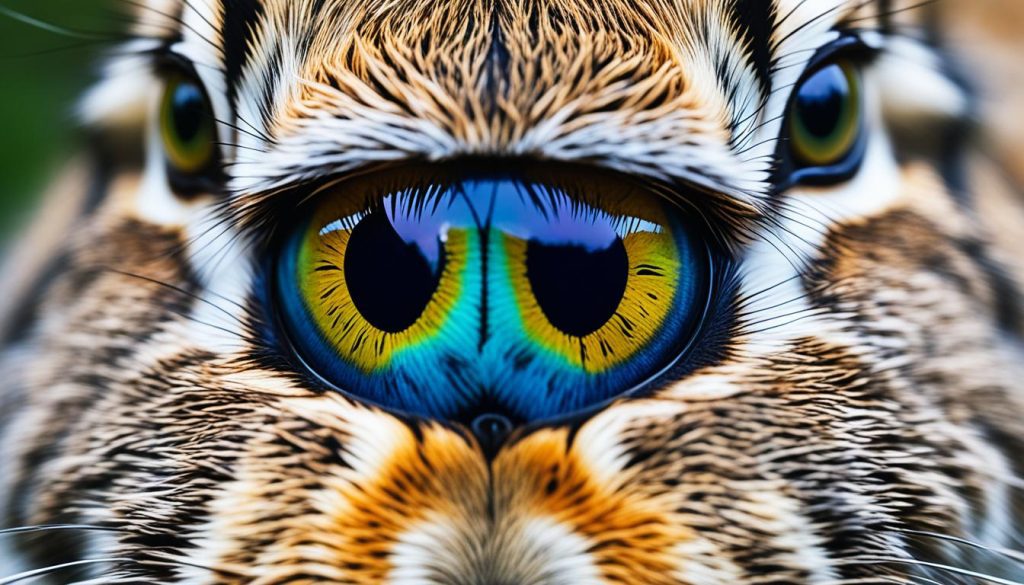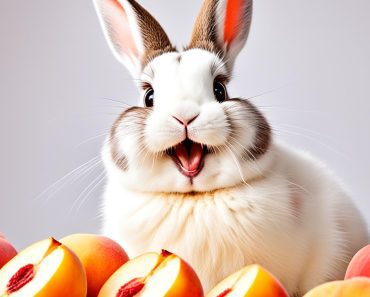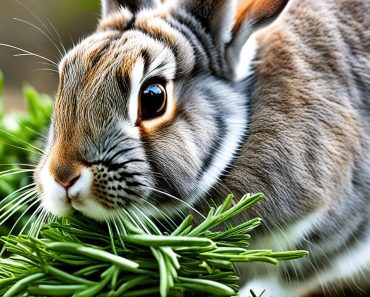When it comes to vision in the dark, rabbits have some impressive abilities. As a crepuscular species, they are most active during dawn and dusk, which means they are accustomed to low-light conditions. But can rabbits see in the dark?
Rabbits have adapted eyes that allow them to see better than humans in dim lighting. While they cannot see in complete darkness, their night vision is far superior to ours. This is due to their large eyes, which enable more light to enter, and their higher ratio of rods to cones in their retina, the photoreceptor cells responsible for vision.
So, how well can rabbits actually see in the dark? While their vision in low-light situations is impressive, it’s important to remember that they still require some level of light to see clearly. They may not be able to see as well as they do during the daytime, but they can navigate effectively in dimly lit environments.
Can Rabbits See in the Dark? Yes, they can, but not as well as nocturnal animals.
- Rabbits have adapted eyes for low-light conditions, allowing them to see better than humans in dim situations.
- Their large eyes and higher ratio of rods to cones in their retina contribute to their night vision abilities.
- Rabbits cannot see in complete darkness but can navigate effectively in low-light environments.
- They are most active at dawn and dusk, making their superior night vision essential for their crepuscular lifestyle.
- Proper care and regular check-ups are important in maintaining a rabbit’s overall eye health.
How Do Rabbit’s Eyes Work?
Rabbit eyes are fascinating structures that enable these small creatures to navigate their environment effectively. Understanding the anatomy and functioning of their eyes provides insights into their remarkable vision abilities.
Rabbit eyes are positioned laterally on the sides of their head, giving them a nearly 360-degree field of vision. This positioning allows them to detect potential threats from different directions, enhancing their survival instincts.
Inside the rabbit’s eye, there are photoreceptor cells known as rods and cones. Rod cells are more abundant and are primarily responsible for vision in low-light conditions, such as at dusk and dawn. On the other hand, cone cells facilitate color vision and work best in bright light. However, rabbits have limited color vision and can mainly perceive hues of green, blue, and yellow.
Their eyes are highly sensitive to light, enabling them to detect even the slightest movements. This heightened sensitivity aids in their survival, helping them quickly spot potential predators and escape danger.
Overall, the unique eye structure of rabbits, combined with a higher number of rod cells and the ability to detect motion swiftly, contributes to their exceptional vision abilities.
Can Rabbits See in the Dark?
While rabbits can see well in low-light conditions, their vision is not designed for complete darkness. Unlike animals with a tapetum lucidum, a reflective layer in the eye that enhances vision in near darkness, rabbits lack this structure. However, their ability to adapt to different light settings enables them to navigate a room even in low-light situations. Their night vision still outperforms that of humans, allowing them to move confidently in dimly lit environments.
Although rabbits cannot see in absolute darkness, their eyesight remains highly functional in low light. The large size of their eyes enables more light to enter, enhancing their visibility in dim conditions. Additionally, rabbits have a higher ratio of rod cells, which are responsible for vision in low-light conditions, compared to cone cells that facilitate color vision in bright light.

Are Rabbits Nocturnal?
Rabbits have a unique activity pattern that sets them apart from nocturnal animals. Rather than being active solely during the night, rabbits are classified as crepuscular creatures. This means that they are most active during the transitional periods of dawn and dusk.
Unlike nocturnal animals that primarily thrive in complete darkness, rabbits exhibit crepuscular behavior to avoid the heightened activity of their predators during the day and night. By favoring the hours around sunrise and sunset, rabbits can navigate their surroundings with reduced risk and increased safety.
During these periods, rabbits engage in various activities such as traveling, foraging for food, and socializing with other rabbits. Their crepuscular behavior aligns with their natural instincts and helps them adapt to their environment more effectively.
One of the factors that contribute to the success of rabbits during low-light conditions is their exceptional vision. With eyes specifically adapted for dimly-lit situations, rabbits utilize their heightened visual acuity to stay alert and cautious during the crepuscular hours.
Having evolved to depend on their senses, rabbits maximize their vision to detect potential threats and navigate their surroundings. This ability to remain vigilant during the dim hours of the day further solidifies their crepuscular behavior.
“The crepuscular behavior of rabbits helps them strike a balance between avoiding daytime predators and minimizing their exposure to nocturnal dangers.”
Understanding and respecting the crepuscular nature of rabbits is crucial for their well-being. Providing them with an environment that accommodates their activity patterns, such as access to safe outdoor spaces during the transitional hours, can help promote their natural behavior and overall happiness.
Keeping Your Rabbit’s Vision Healthy
A rabbit’s eye health is vital for their overall well-being. Taking care of their eyes requires attention to specific aspects of their environment and lifestyle. Here are some essential tips to maintain your rabbit’s eye health:
-
Provide a Clean and Spacious Living Environment: Ensure your rabbit’s living area is clean and free from dust, debris, and potential irritants. Regularly clean the cage or enclosure to prevent eye infections and maintain a healthy environment.
-
Regular Vet Check-ups and Vaccinations: Routine visits to the veterinarian are crucial for monitoring your rabbit’s eye health. A veterinarian can detect early signs of eye problems or diseases and provide appropriate treatment.
-
Ensure a Balanced Diet: Proper nutrition plays a significant role in maintaining your rabbit’s eye health. Provide a diet rich in fresh hay, vegetables, and limited amounts of high-quality pellets. Avoid feeding your rabbit excessive treats or foods that may negatively impact their eyes.
-
Provide Mental and Physical Stimulation: Engage your rabbit in activities that stimulate their senses, both mentally and physically. Offer them chew toys, tunnels, and interactive playtime sessions to prevent boredom and promote overall well-being.
By following these rabbit eye care tips, you can ensure your furry friend maintains optimal eye health, enhancing their quality of life.
Rabbit Eye Care Quotes:
“A clean and spacious living environment is essential for maintaining a rabbit’s eye health. Regularly clean their cage or enclosure to prevent eye infections.” – Veterinarian Dr. Emily Thompson
“Proper nutrition, including a balanced diet of hay and vegetables, is crucial for maintaining healthy rabbit eyes.” – Rabbit Care Specialist, Sarah Peterson

Conclusion
Rabbits possess remarkable vision capabilities, allowing them to navigate efficiently in low-light conditions. While they are unable to see in complete darkness, their night vision surpasses that of humans, enabling them to remain safe and aware of their surroundings.
Understanding how rabbit eyes work and taking proper care of their vision is crucial for the overall health and well-being of these fascinating creatures. By providing them with a clean and spacious living environment, regular veterinarian check-ups, and a balanced diet, we can ensure their eyesight remains in optimal condition.
Although rabbits’ night vision may not be perfect, their ability to adapt to low-light settings and effectively utilize the available visual cues is a testament to their highly specialized eyes. By continuing to learn about and appreciate the intricacies of rabbit eyesight, we can better cherish and care for these wonderful animals.






